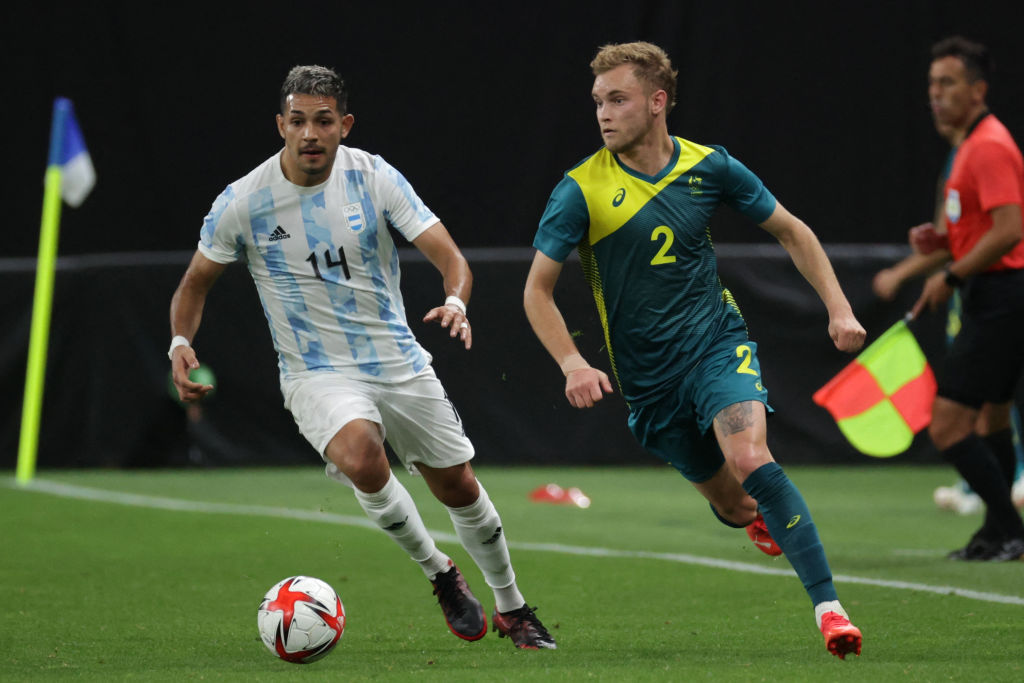IT’S doubtful any of the current Olyroos squad remembers much of the NSL, given that many were aged around five or six at the time of the former national league’s closure.
Some are even too young to remember much of the last time Australia played men’s football at the Olympics in 2008, a tournament in which they went into the last group game with hopes of making it through to the knockout stages – just as they do again tonight, against Egypt.
Instead, this is the first senior Australian men’s squad that can in the main be stamped “made in the A-League”. Two thirds of its 22 members came through A-League academies, from the point six years ago when the clubs assumed the main responsibility for youth development across the country.
It was a shift not without controversy, especially when Football Australia shut its own centre of excellence based at the AIS in Canberra in 2017. But the proof of the pudding is in seeing players such as Joel King and Nathanial Atkinson excelling after spending their latter teenage years inside an elite club environment.

Long-time observers of the youth development system note several ancillary benefits – fewer players forced to try their luck overseas, more players able to stay within their home environment by moving through the system at their local club.
Those advantages should only intensify in years to come, as players emerge who have been inside the club system from the youngest representative age, U13. The second-youngest player in the Olyroos squad, Marco Tilio, joined Sydney FC at 14 when the Sky Blues established their academy in 2015. Tilio progressed all the way to the first team before leaving in pursuit of first-team football at Melbourne City last year.
Augmenting that is the proliferation of playing opportunities given to young players in the A-League this season, allowing many to demonstrate to Olyroos coach Graham Arnold that they were ready for the international stage.
Arnold has rightly been praised for the intelligence and maturity of the way his team has played in Japan, but it’s also the culmination of a system that is in many ways still bedding down but already generating a fresh crop of players.
As Arnold keeps repeating, nothing has been achieved yet, at least nothing tangible, but a point or a victory against Egypt tonight will take Australia into the knockout stages for the first time since 2004. That’s mouthwatering enough in its own right, but the progress of this team has already underscored the value of the A-League clubs investing in their own talent.
.jpg)





